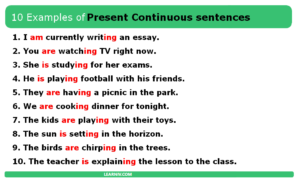The affirmative form of the BE verb is an essential aspect of the English language. It’s used to express a positive statement or assertion about a particular subject, and is an essential part of constructing basic English sentences. In this blog post, we’ll delve deeper into the affirmative form of the BE verb, how to use it in different tenses, and provide examples.
Affirmative Form of BE Verb:
The affirmative form of the BE verb is straightforward and easy to use. In its basic form, it consists of the BE verb followed by the subject. For example:
- I am a student.
- You are a good friend.
- He is an engineer.
The BE verb can be used to construct affirmative sentences in different tenses, such as the present, past, and future. Here’s how to make an affirmative sentence with the BE verb in different tenses:
-
Present Tense:
To construct an affirmative sentence in the present tense with the BE verb, you need to use the appropriate form of the verb based on the subject. For example:
- I am studying for my exams.
- You are a great athlete.
- He is an excellent musician.
-
Past Tense:
In the past tense, the affirmative form of the BE verb requires the use of the past tense of the verb. For example:
- I was happy to see you yesterday.
- You were at the party last night.
- She was not feeling well yesterday.
-
Future Tense:
In the future tense, the affirmative form of the BE verb requires the use of the auxiliary verb “will” followed by the base form of the BE verb. For example:
- I will be at the conference next week.
- You will be a successful entrepreneur.
- They will be happy with the results.
Examples of Affirmative Form of BE Verb:
-
Present Tense:
- She is a talented artist.
- We are going to the beach this weekend.
- They are having a great time at the party.
-
Past Tense:
- He was a brilliant student in college.
- You were late for the meeting yesterday.
- I was happy to see you last week.
-
Future Tense:
- She will be traveling to Europe next month.
- We will be finished with the project by Friday.
- They will be attending the concert tonight.
vestigate also verb forms of BE (V1, V2, V3, V4, V5) and BE in the past and participle form.
More examples of Affirmative sentences with the verb BE
Look also at:
Conclusion:
The affirmative form of the BE verb is a fundamental component of constructing basic English sentences. By understanding how to use it in different tenses, you can improve your ability to communicate effectively in English. Whether you’re speaking, writing, or reading, being familiar with the affirmative form of the BE verb can help you express yourself with clarity and accuracy.

